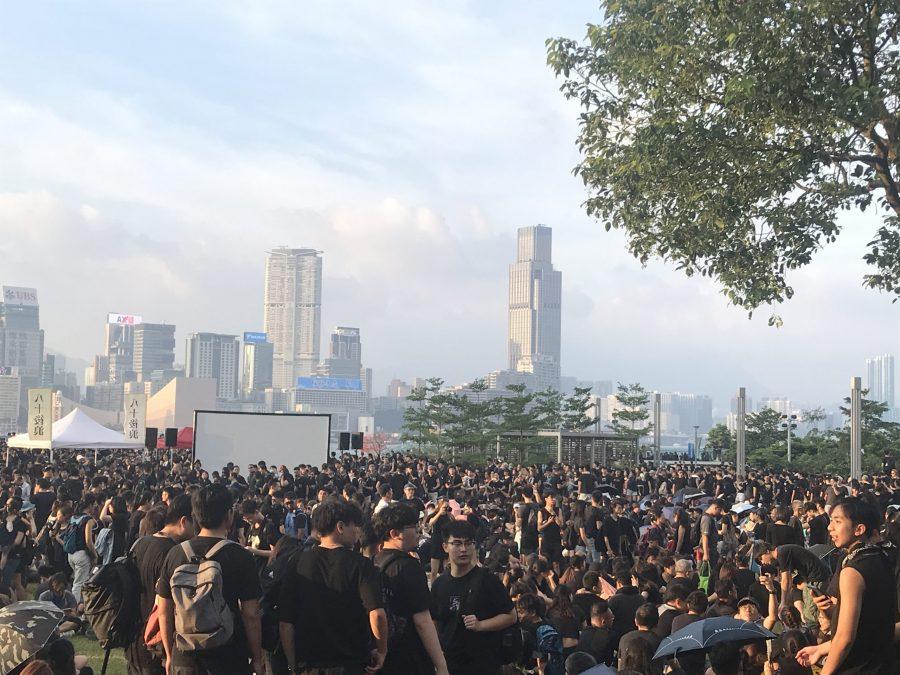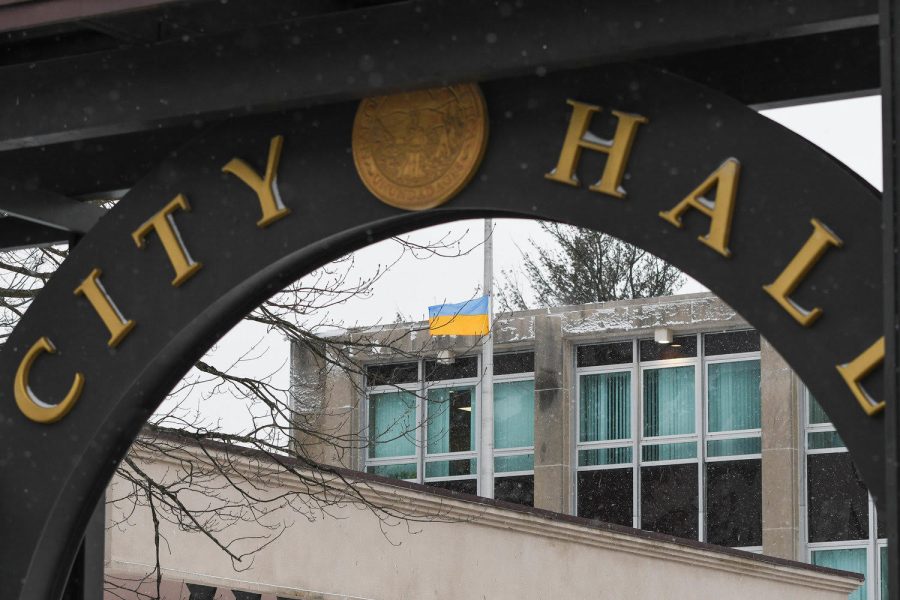Studying abroad involves assessing the inherent risks of living in a different country for an extended period of time. And with the increasing political unrest and historical protests in places such as Hong Kong, the situation not only affects the local population there but also international students.
The protests started in early June when nearly 2 million people demonstrated in the city against the Fugitive Offenders amendment bill, a law proposed by the local government which would allow the extradition of criminals to places such as Taiwan and Mainland China.
In 1997, the British Empire handed Hong Kong over to China, promising political autonomy that was set to last for 50 years. This promise held that the former British colony would become a special administrative region of China. Unlike Beijing, the commitment also meant that Hong Kong enjoyed certain freedoms such as a capitalistic market and a high level of civil liberties.
The extradition bill caused an uproar in the city as Hongkongers understood it as China’s broken promise of autonomy. For six months the protests have led to blocked airports and train stations. Recent, more violent clashes between demonstrators and the police have caused social insecurity and has even forced universities to cancel classes for the remainder of the semester.
This situation raises concern when studying abroad, an experience which dozens of UC students embark on every semester.
While no Utica College students are studying in Hong Kong this semester, Emergency Management and the Office of International Education have established a plan that evaluates a potential risk for UC students and whether there is a need of evacuation.
The Tangerine contacted a few Hong Kong students that studied at UC in the past to provide an insider view of what the city is experiencing.
“Ever since the protests started, having a normal day without any frustration and sadness seems to be a distant dream for most of the Hong Kong people, including myself,” said Tam Kwo Tim, a former international student who studied at UC in the Spring of 2019 and returned to Hong Kong in June when the protests broke out.
On June 8, Tam joined the second major protest in the city. She described the situation as “peaceful,” but also as a sad day after one of the protestors jumped off a building the day before.
“Months after months, it was devastating to see more people, especially students, get arrested or even sacrificing their lives,” Tam said.
As the protests progressed over the summer, demonstrators laid out a list of five demands: a withdrawal of the extradition bill, the creation of a commission to investigate alleged police brutality, a modification of the protestors labeling as riots, and the resignation of Carrie Lam as chief executive of Hong Kong, as well as the introduction of universal suffrage to elect the Legislative Council and the Chief Executive.
So far, the government has responded to one of those demands, that being the withdrawal of the extradition bill.
After returning to Hong Kong from her study abroad exchange program at UC in the Fall of 2018, Po Ki Lee has attended several pro-democracy protests. She said the clashes between demonstrators and the police are becoming more violent, with authorities using “rubber bullets, tear gas and pepper spray towards unarmed and peaceful protestors.”
In November, Lee participated in a sit-in at the Hong Kong Polytechnic University and said the police closed it for a week and blocked all access points.
“They didn’t let food or first aid go in,” she said. “I was there for three days. During that time, I had to stay alert every second because I was scared that the police would come. I was dehydrated and scared that (the authorities) would arrest me anytime.”
Lee said she left Hong Kong because of fear that she will face arrest after participating in the protests.
“I remember I was safe at UC,” Lee said.
Pui Hee Lee is a current student at UC who said she had always been politically apathetic.
Until now.
“I went to the demonstrations even though I knew that nothing could be done,” she said. “Simply enjoying the possibly last bit of freedom I could have in the city.”
In 1949, Mao Zedong established the People’s Republic of China, ruled by the communist party. Pui said that even though some people dream of China becoming a democratic country, “it cannot be in the near future because it’s against the Chinese tradition.”
Pui attended one of the demonstrations on June 12, which was defined as a “riot” by the local government.
“When the protests started getting violent, I tried my best to be at the back or out of it,” Pui said.
The international student defined coming to UC as a “dream.” A place where she has been able to find a passion for theater and writing.
“Some people have asked me about what is happening in Hong Kong and I appreciate their patience of listening to a person who is more comfortable with writing,” she said.
With tensions in Hong Kong escalating rapidly, Executive Director of International Education Deborah Wilson-Allam said that in case there were UC students in the city during this time, there would be conversations with Lingnan University and the United States Embassy to evaluate whether there is a potential risk for the students.
Wilson-Allam also explained that as a result of the political unrest, she thinks the interest in studying abroad in Hong Kong will decrease among UC students. However, she said it also depends on how it will eventually be resolved.
“There are situations all over the world where events like this happen,” Wilson-Allam said. “There’s political insecurity and then it passes and people start going back.”
According to Wilson-Allam, the way in which the political unrest in Hong Kong is resolved could not only have a potential effect on students wanting to study abroad there, but also on UC considering sending students there.
“We have to be very sure that our students will be safe so we don’t take that lightly at all,” she said.
American citizens can register with the Embassy with the Smart Traveler Enrollment Program (STEP), which allows the embassy to know their location and contact information in case of a natural disaster or political conflict.
The State Department also has labeled countries on a scale of 1 to 4 that describes the level of risk and issues travel advisories.
On Nov. 27, the U.S. passed the Hong Kong Human Rights and Democracy Act, which will impose sanctions on China and Hong Kong officials for human rights violations during the 2019 protests.
Both Tam and Lee expressed gratitude for this federal law.
Tam said students wanting to study abroad in Hong Kong should be “prepared” and not go near the protests, although most areas are safe. Pui advised not visiting Hong Kong for the time being.
According to Tam, the best way to help Hong Kong would be by spreading the news and messages happening in the territory, especially on social media.
“I actually suggest people going to Hong Kong because (they) will be witnessing history,” Lee said.


















![President Todd Pfannestiel poses with Jeremy Thurston chairperson Board of Trustees [left] and former chairperson Robert Brvenik [right] after accepting the university's institutional charter.](https://uticatangerine.com/wp-content/uploads/2023/10/unnamed.jpeg)





















































































































